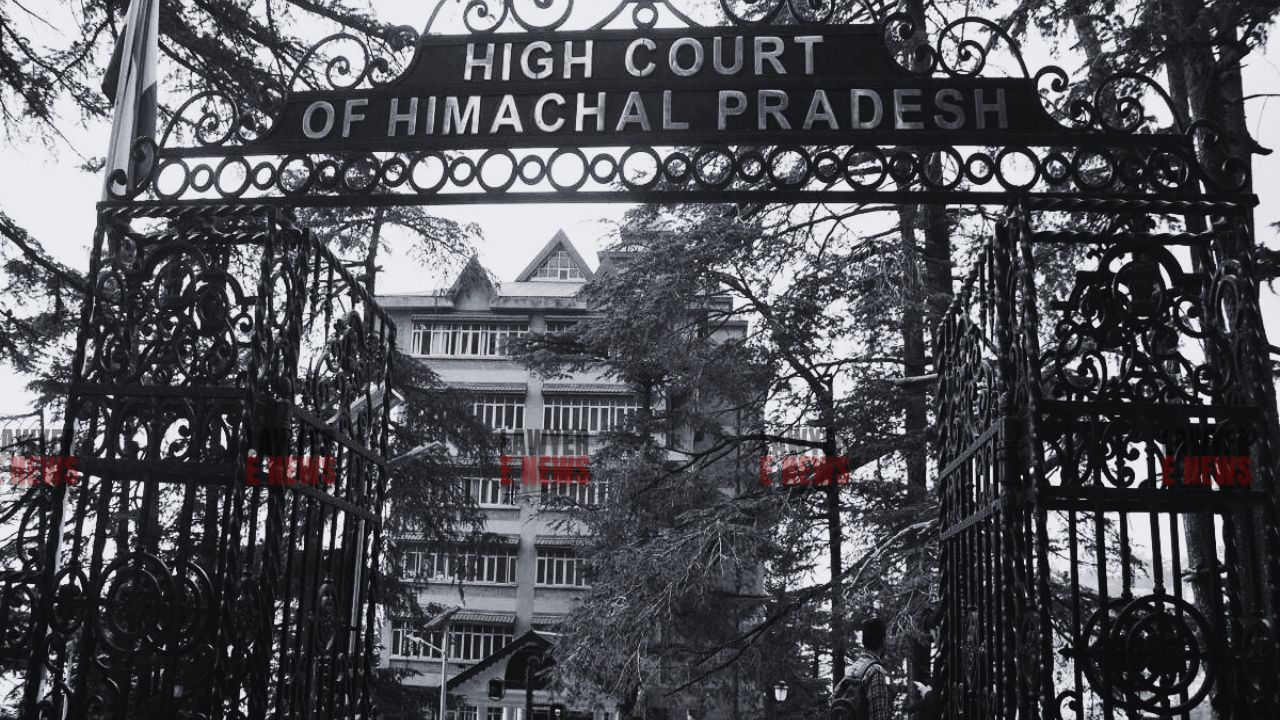-
by Admin
15 February 2026 2:36 AM



DNA evidence reveals that the biological father of the victim's child is not the accused but his younger brother, leading to acquittal.
In a recent landmark judgment, the Himachal Pradesh High Court acquitted Nitya Nand, who had been convicted of rape and sentenced to rigorous imprisonment under Section 376 of the Indian Penal Code (IPC) and the Protection of Children from Sexual Offences (POCSO) Act. The bench, comprising Justices Tarlok Singh Chauhan and Sushil Kukreja, highlighted serious inconsistencies in the prosecution’s case and questioned the credibility of witness testimonies and medical evidence.
Nitya Nand was convicted by a trial court for raping a minor, an incident reportedly occurring on December 21, 2015. The case came to light when the minor visited a hospital on September 5, 2016, for a routine checkup and was found to be pregnant. The police were informed, and an investigation led to the filing of an FIR against Nitya Nand under Section 376 of the IPC and Section 4 of the POCSO Act. The minor alleged that her cousin, Nitya Nand, had raped her when she was alone at home. Despite these allegations, the delay in reporting the incident and inconsistencies in witness testimonies cast doubt on the prosecution’s case.
Delay in Filing FIR:
The court underscored the significant delay of nine months in filing the FIR, emphasizing that this delay required the evidence to be scrutinized with greater care. Justice Chauhan noted, “The inordinate and unexplained delay in not reporting or even registering the FIR casts a serious cloud or suspicion regarding the credibility of the prosecution story.”
The medical evidence revealed that the biological father of the child born to the minor was Nitya Nand’s younger brother, Tijinder, not the appellant. This crucial piece of evidence significantly weakened the prosecution’s case against Nitya Nand.
The court found the sole testimony of the minor insufficient to sustain the conviction. Justice Chauhan remarked, “The sole testimony of the prosecutrix does not inspire confidence and is not supported by other evidence on record.” The strained relations between the families of the victim and the accused further complicated the case, as the court found potential motives for false implications.
The judgment emphasized the necessity for the testimony of the victim to be of “sterling quality” in cases of sexual violence, especially when there is a significant delay in filing the FIR. The court referred to the Supreme Court’s standards for evaluating such testimonies, highlighting the need for consistency and corroboration by other evidence.
Justice Chauhan observed, “The medical evidence does not support the case of the prosecution, as Tijinder was found to be the biological father of the child born to the child victim.”:
The acquittal of Nitya Nand underscores the critical importance of timely reporting and consistent, corroborated evidence in cases of sexual violence. The High Court’s decision highlights the judiciary’s commitment to ensuring that convictions are based on reliable and robust evidence. This judgment is expected to have significant implications for the handling of similar cases in the future, reinforcing the necessity for meticulous and prompt investigations.
Date of Decision: July 29, 2024
Nitya Nand vs. State of Himachal Pradesh
